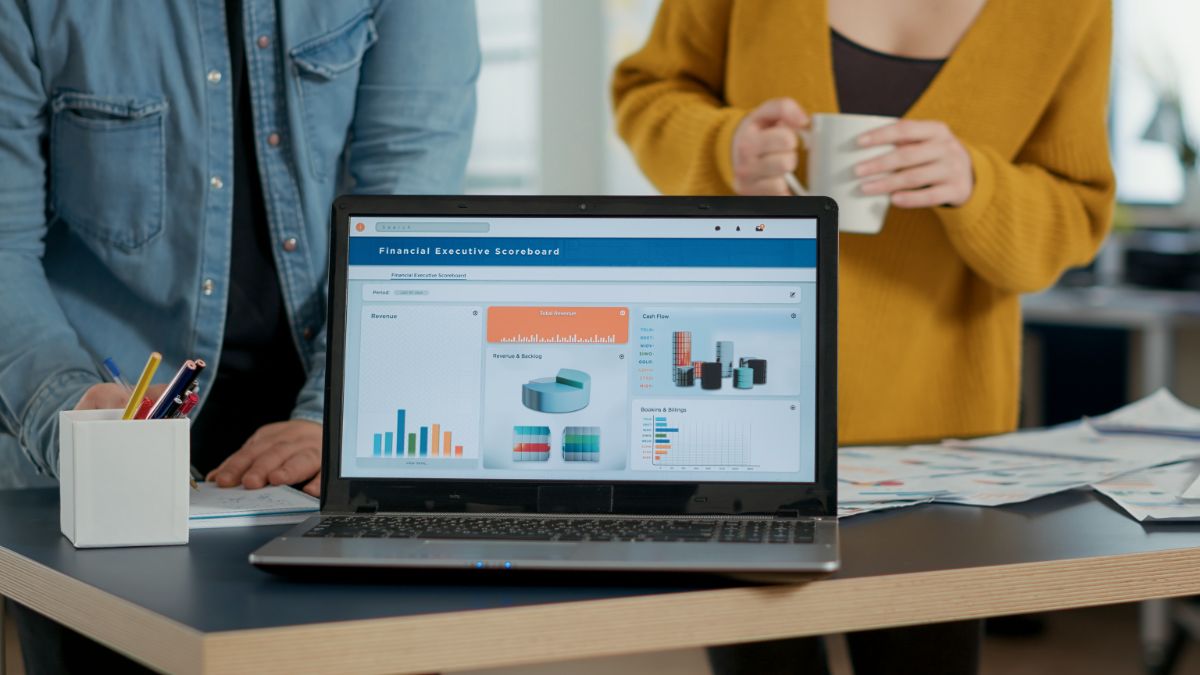What are the benefits of ERP for small businesses?
- Makes data clear and accessible
- Automates workflows
- Achieves cost effectiveness
- Maintain control over operating costs
- Improved decision-making
- Helps companies scale and adapt
Managing a business, even a small one, is not easy. There are many complex processes, like production, inventory, shipping, financial reports, and more that you may not have the resources or manpower to do. That’s where a comprehensive planning and tracking tool like ERP comes in.
If you’re considering using an ERP system, one of your first questions is probably how, exactly, this tool can help. There are many benefits of ERP for small businesses, and this article breaks them down for you in detail:
Makes data clear and accessible

At the start, you may have purchased business software any time a specific need came up. While this may have been fine at first, it won’t be for long. Soon enough you’ll find that you’ve made different pockets of data across different departments and functions. This makes it difficult for your people to access critical information easily, which slows down any task, project, or decision-making process.
An ERP is the best tool to gather and store all the data your business needs. This includes inventory data, sales, and marketing figures, shipping information, and more. This system provides real-time updates and data that can be shared and accessed across all teams and departments.
This helps teams collaborate more effectively. This also eliminates the risk of inaccurate data, and the need to re-enter or export data. Thus, accuracy is improved, while errors and expenses between teams are reduced.
Automates workflows
Human error is unavoidable — but it’s one of the biggest efficiency gaps your business can experience. This is common in smaller businesses, where they often rely on people to log and re-enter data over and over again. But, when this happens, you expose your business to potential delays and problems.
Automating these jobs makes it far less likely for your people to make mistakes. This means you are at less risk of missed orders, overstocking or understocking inventory, miscommunication, and more.
ERP makes sure that the data flows through your business like a well-oiled machine, without delay or mistake. Thus, your business runs more efficiently, and your customers get a consistently reliable experience. These are two key factors for your future growth.
Achieves cost-effectiveness

Using an ERP system will always help a business cut down on operating and administrative costs — even if the business itself is small. As we mentioned earlier, ERP helps automate many data processes. So, your people have less work to weigh them down.
So, not only does their workflow more easily, but they also have more time to take on more profitable value-driving projects and tasks. As a result, productivity and turnaround time are both improved, making your operations cost-effective! When your people can work effectively, your entire business benefits.
Maintain control over operating costs
Small businesses often use several cheap tools such as spreadsheets or simple accounting software to keep track of transactions. However, doing this will eventually cause more problems in the long run, especially as your business grows. This is because they’re inefficient, and can cause things like lost orders, inventory shortages, poor planning, missed invoicing, missed shipments, and lack of control.
Switching to ERP early on will only benefit your bottom line. ERP removes the need for different tracking and reporting software, as it is designed to accommodate several departments, such as HR, sales and marketing, finance, and more. It can even scale up through affordable modules and upgrades, meaning you can stick to this system even as your business grows. So, you can save money on individual tools for each department, and gain a system that you can invest in for the long run.
Improved decision-making

Making smart business decisions relies on two things: available data, and accurate reports. An ERP system helps your business gather relevant data, store it in a way that's easily accessible — even remotely — and offers the option of compiling it into customized reports. This makes it such a useful tool for small businesses, where you have to make these decisions promptly to help your business stay competitive.
With all the different kinds of data and reports that your ERP system can generate, you can compare things like sales figures, monthly revenue, and more to forecast what decisions you need to take. This may help with future sales, financial planning, and other effective decisions that help your business slowly but surely grow.
Helps companies scale and adapt
Finally, ERP helps your business easily scale and adapt to any market changes it comes across. But how does this work?
Take, for example, a sudden growth surge — suddenly, hundreds of people are ordering your products. Will you be able to manually process order fulfillment? How will you and your team handle twice the volume you’re used to?
While this scenario gives growing pains for any business, ERP can greatly reduce the impact. The automated workflows it powers takes off much of the burden off employees while guaranteeing productivity. That frees your people enough time to handle everything else.
So, one of the greatest benefits of ERP software for small businesses is that it equips you with agility and flexibility. Your business is better prepared to adapt to new market needs or conditions, which many other small businesses struggle with due to a lack of manpower or resources.
Key Takeaway
The benefits of ERP for small businesses show that it is a necessary tool for driving performance, managing data effectively, and achieving business adaptability and flexibility.
If you’re interested in using an ERP solution in the Philippines for your small business, contact DynamIQ today. We specialize in servicing small and medium business enterprises, and can help you implement and achieve long-term business advantages with ease!


